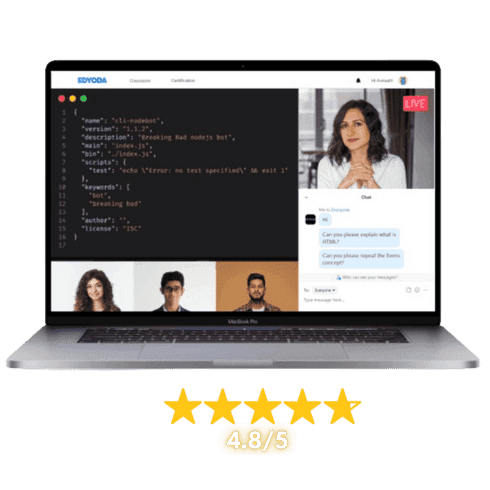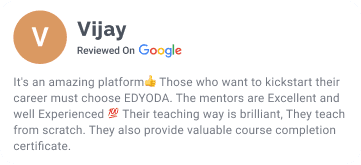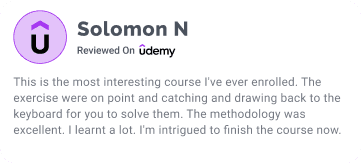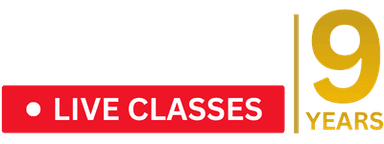
MICRO DEGREE
Power and RF System Design
Power and RF System Design
100% LIVE Interactive Classes
Power and RF System Design

100% LIVE Interactive Classes
Reserve your spot today!
Basic Info
Select Offers
Application closes on:06 Feb 2026
Get instant access of pre-course material!
Talk to Us
We’re here to help! Reach us at:
What is in it for you?
Shape the future with Power and RF System Design
 100% Live Classes
100% Live Classes
 Instructor-led Live Sessions
Instructor-led Live Sessions
Attend 4 weeks of instructor led live classes from the top 1% industry experts
Projects & Case Studies
Projects & Case Studies
Gain hands-on experience with projects and real-world case studies for impactful learning
Verified Certificate
Verified Certificate
Earn a industry recognized certificate and kick start your career
Session Recordings
Session Recordings
Revisit older chapters anytime with recorded sessions
Flexible Schedule
Flexible Schedule
Choose live classes from different cohorts that fit your availability.
Study Materials
Study Materials
Access comprehensive study materials designed to enhance your learning experience
100% Moneyback Guarantee
Grab your slot before the offer expires
Discount applicable for next 10 candidates only.
Reserve your spot today!
Basic Info
Select Offers
Application closes on:06 Feb 2026
Get instant access of pre-course material!
Talk to Us
We’re here to help! Reach us at:
Learn from Top 1%
Sr. Managers, VPs, CXOs, Directors & Founders from companies shaping the future.

Combo Offers
Create Your Own Combo
100% Moneyback Guarantee
Available in 4 monthly installments at $163/month
Reserve your spot today!
Curriculum
A Curriculum designed for your success
Live Sessions Schedule ![]() Sat - Sun (Weekends Only)
Sat - Sun (Weekends Only) ![]() Timing 7:00 AM - 9:00 AM / 8:30 AM - 10:30 AM / 11:00 AM - 1:00 PM / 5:00 PM - 7:00 PM / 7:30 PM - 9:30 PM EST
Timing 7:00 AM - 9:00 AM / 8:30 AM - 10:30 AM / 11:00 AM - 1:00 PM / 5:00 PM - 7:00 PM / 7:30 PM - 9:30 PM EST
- Overview of power and RF subsystems in modern electronics
- Key performance metrics: efficiency, noise, gain, and linearity
- Frequency spectrum and power domain interactions
- Trade-offs between analog, RF, and digital sections
- Block-level hardware design considerations
- Industry applications: IoT, automotive, wireless, and telecom
- Linear vs. switching regulators: principles and design trade-offs
- DC-DC converter topologies (buck, boost, buck-boost)
- Power sequencing and soft-start techniques
- Feedback loop design and compensation methods
- Thermal design and heat dissipation strategies
- Designing regulated power rails for RF and mixed-signal systems
- Understanding power distribution networks (PDN)
- Grounding and decoupling for mixed-signal and RF systems
- Noise coupling, EMI/EMC considerations, and mitigation
- Transient response and load regulation techniques
- Simulation of power integrity using SPICE tools
- PCB layout guidelines for clean power delivery
- Fundamentals of electromagnetic waves and RF signal behavior
- Frequency bands, modulation techniques, and spectrum usage
- Key RF parameters: S-parameters, VSWR, gain, and noise figure
- Passive RF components: filters, couplers, and attenuators
- Active components: amplifiers, mixers, and oscillators
- Overview of RF front-end architecture in wireless systems
- Power amplifier classes (A, B, AB, C, D, E, F) and applications
- Impedance matching and maximum power transfer
- Low-noise amplifier (LNA) design and stability analysis
- RF filter design using lumped and distributed elements
- Band-pass, band-stop, and LC filter tuning
- Practical simulation and testing of RF gain stages
- Oscillator fundamentals and feedback conditions
- Crystal, LC, and RC oscillator designs
- PLLs and frequency synthesizer design for RF systems
- Phase noise and jitter considerations
- Frequency stability and temperature compensation
- Simulation and measurement of oscillator performance
- Antenna types, parameters, and selection criteria
- Basics of impedance matching and Smith chart usage
- Transmission line theory and wave propagation
- Coaxial, microstrip, and stripline design practices
- VSWR measurement and reflection minimization
- Antenna tuning and real-world measurement techniques
- Layer stack-up design for RF and mixed-signal boards
- Controlled impedance routing and differential pair design
- Crosstalk, reflections, and shielding best practices
- Grounding and partitioning analog, digital, and RF sections
- Design for manufacturability and assembly for RF PCBs
- Simulation-driven layout validation (ADS, HFSS, or KiCad RF tools)
- Using VNAs, spectrum analyzers, and signal generators
- Measuring return loss, insertion loss, and S-parameters
- Power amplifier linearity and distortion testing
- RF emission, immunity, and EMC testing setup
- Calibrating and maintaining RF test environments
- Compliance with CE, FCC, and ETSI standards
- Co-design strategies for power and RF subsystems
- Managing coupling and interference between power and RF domains
- System-level efficiency and thermal trade-offs
- Design optimization for portable and battery-powered systems
- Case study: wireless transceiver with integrated power delivery
- Design documentation and production readiness checklist
Mentors

Shome C
20+ Years, Sr. R&D Engineer, Ideaforge

Dr. Rohan M
10+ Years, Sr. Robotics R&D, Unbox Robotics
Course Includes

LIVE Interactive Sessions

Quizzes, Assignments & Projects

Study Materials & Session Recordings

Certificate
Course Includes

LIVE Interactive Sessions

Quizzes, Assignments & Projects

Study Materials & Session Recordings

Certificate
Course Pre-requisites
.ffb97545.png&w=16&q=75&dpl=dpl_2X6puNjuSG9CgzTr1NoFpPk8Uhfv) Basic electronics knowledge is required for this course.
Basic electronics knowledge is required for this course.
Outcomes
.ffb97545.png&w=16&q=75&dpl=dpl_2X6puNjuSG9CgzTr1NoFpPk8Uhfv) Design efficient and reliable power delivery networks for embedded and RF systems using modern DC-DC converters, LDOs, and sequencing techniques.
Design efficient and reliable power delivery networks for embedded and RF systems using modern DC-DC converters, LDOs, and sequencing techniques..ffb97545.png&w=16&q=75&dpl=dpl_2X6puNjuSG9CgzTr1NoFpPk8Uhfv) Implement advanced RF design concepts including impedance matching, amplifier stability, and filter tuning to optimize signal performance and minimize losses.
Implement advanced RF design concepts including impedance matching, amplifier stability, and filter tuning to optimize signal performance and minimize losses..ffb97545.png&w=16&q=75&dpl=dpl_2X6puNjuSG9CgzTr1NoFpPk8Uhfv) Develop and simulate RF circuits such as oscillators, PLLs, and frequency synthesizers with focus on noise, stability, and temperature performance.
Develop and simulate RF circuits such as oscillators, PLLs, and frequency synthesizers with focus on noise, stability, and temperature performance..ffb97545.png&w=16&q=75&dpl=dpl_2X6puNjuSG9CgzTr1NoFpPk8Uhfv) Design and analyze antennas, transmission lines, and RF PCB layouts to achieve controlled impedance, low EMI, and robust signal integrity.
Design and analyze antennas, transmission lines, and RF PCB layouts to achieve controlled impedance, low EMI, and robust signal integrity..ffb97545.png&w=16&q=75&dpl=dpl_2X6puNjuSG9CgzTr1NoFpPk8Uhfv) Perform RF testing and measurements using spectrum analyzers, VNAs, and signal generators to validate real-world performance and ensure compliance with CE/FCC standards.
Perform RF testing and measurements using spectrum analyzers, VNAs, and signal generators to validate real-world performance and ensure compliance with CE/FCC standards..ffb97545.png&w=16&q=75&dpl=dpl_2X6puNjuSG9CgzTr1NoFpPk8Uhfv) Integrate power and RF subsystems into complete hardware architectures for IoT, wireless, and communication products with optimal efficiency and reliability.
Integrate power and RF subsystems into complete hardware architectures for IoT, wireless, and communication products with optimal efficiency and reliability.

for successfully completing the 'Power and RF System Design' course conducted from 25 Dec 2025 to 05 Feb 2026
Add a Industry Recognized
Certificate To Your Resume
Industry Recognized
Certificate
Learn the best from the best

Career Advancements
Elevate your career with a respected certificate

Industry Respect
Gain credibility in the field

Networking
Connect with experts and peers

Opportunities
Attract exciting job prospects and promotions


for successfully completing the 'Power and RF System Design' course conducted from 25 Dec 2025 to 05 Feb 2026

100% Moneyback Guarantee
Top 1% Recruiters - Get interview access to 550+ Companies

Recommendations
Hear from our Learners
















Looking for help? Here are our most frequently asked questions
What is a EdYoda Micro Degree?
EdYoda Micro Degree is an online, Live classroom based short-term course, where you get Live Sessions conducted by industry experts. It is designed to help you acquire practical & job-relevant skills quickly.
How do I register for the micro degree?
To register, visit the micro degree details page and fill up the registration form and make the payment to reserve your seat before the application closing date.
What happens after I register and pay?
After successful registration and payment, you will receive a confirmation email with instructions on how to access the online micro degree classes
Are there any pre-requisites?
All you need is a PC or Laptop to attend the online live classes and your commitment of 4 weeks. Apart from that there are no prerequisite for the Micro Degree.
What if I miss a live session?
We've got you covered! The session recording will be added automatically on the classroom platform after the session is ended.
Will I get a certificate after completion?
Yes. After successful completion of curriculum you will be provided a digital certificate which you can download and share with others.

What is a EdYoda Micro Degree?
EdYoda Micro Degree is an online, Live classroom based short-term course, where you get Live Sessions conducted by industry experts. It is designed to help you acquire practical & job-relevant skills quickly.

How do I register for the micro degree?
To register, visit the micro degree details page and fill up the registration form and make the payment to reserve your seat before the application closing date.

What happens after I register and pay?
After successful registration and payment, you will receive a confirmation email with instructions on how to access the online micro degree classes

Are there any pre-requisites?
All you need is a PC or Laptop to attend the online live classes and your commitment of 4 weeks. Apart from that there are no prerequisite for the Micro Degree.

What if I miss a live session?
We've got you covered! The session recording will be added automatically on the classroom platform after the session is ended.

Will I get a certificate after completion?
Yes. After successful completion of curriculum you will be provided a digital certificate which you can download and share with others.
General FAQs
Everything you need to know













